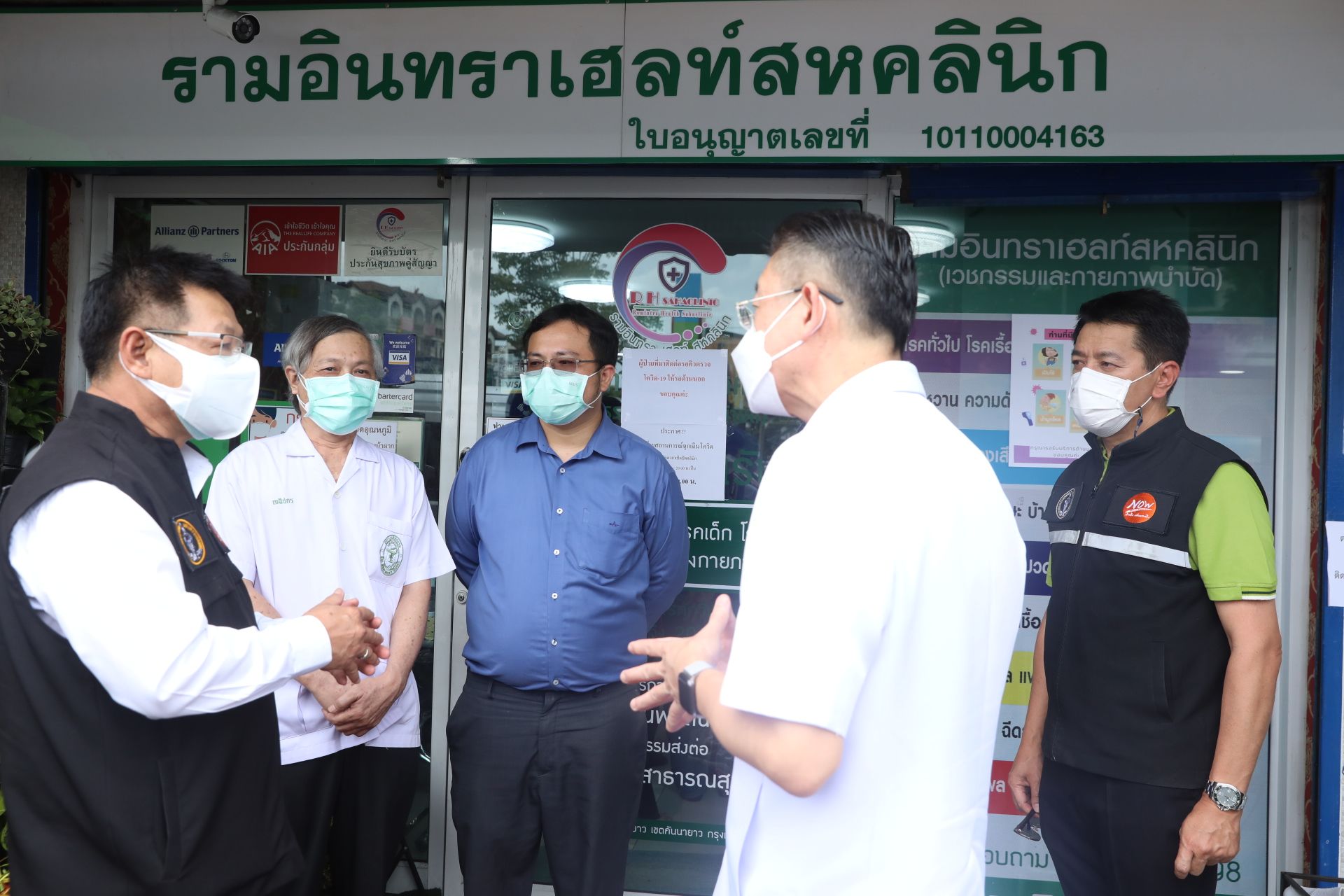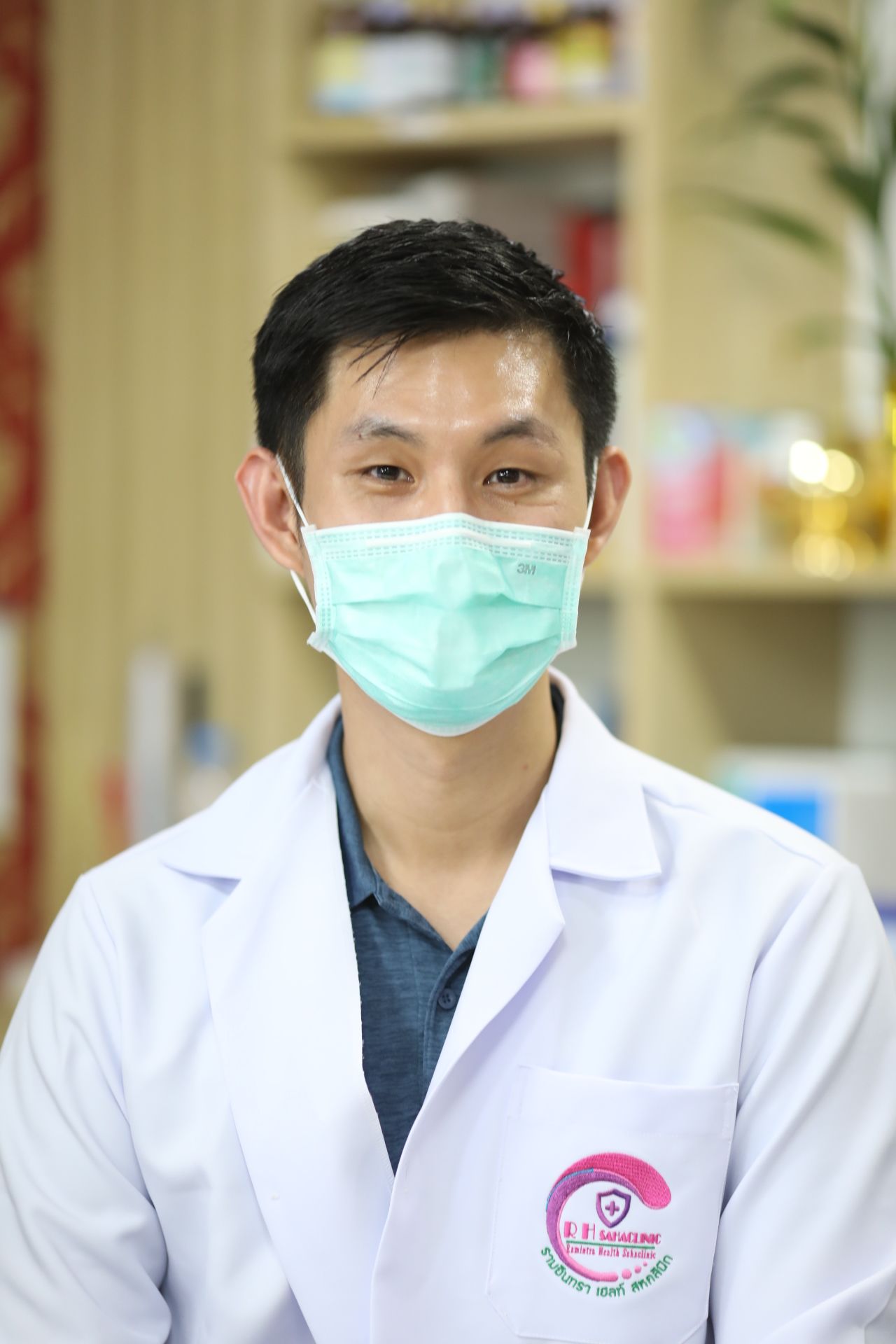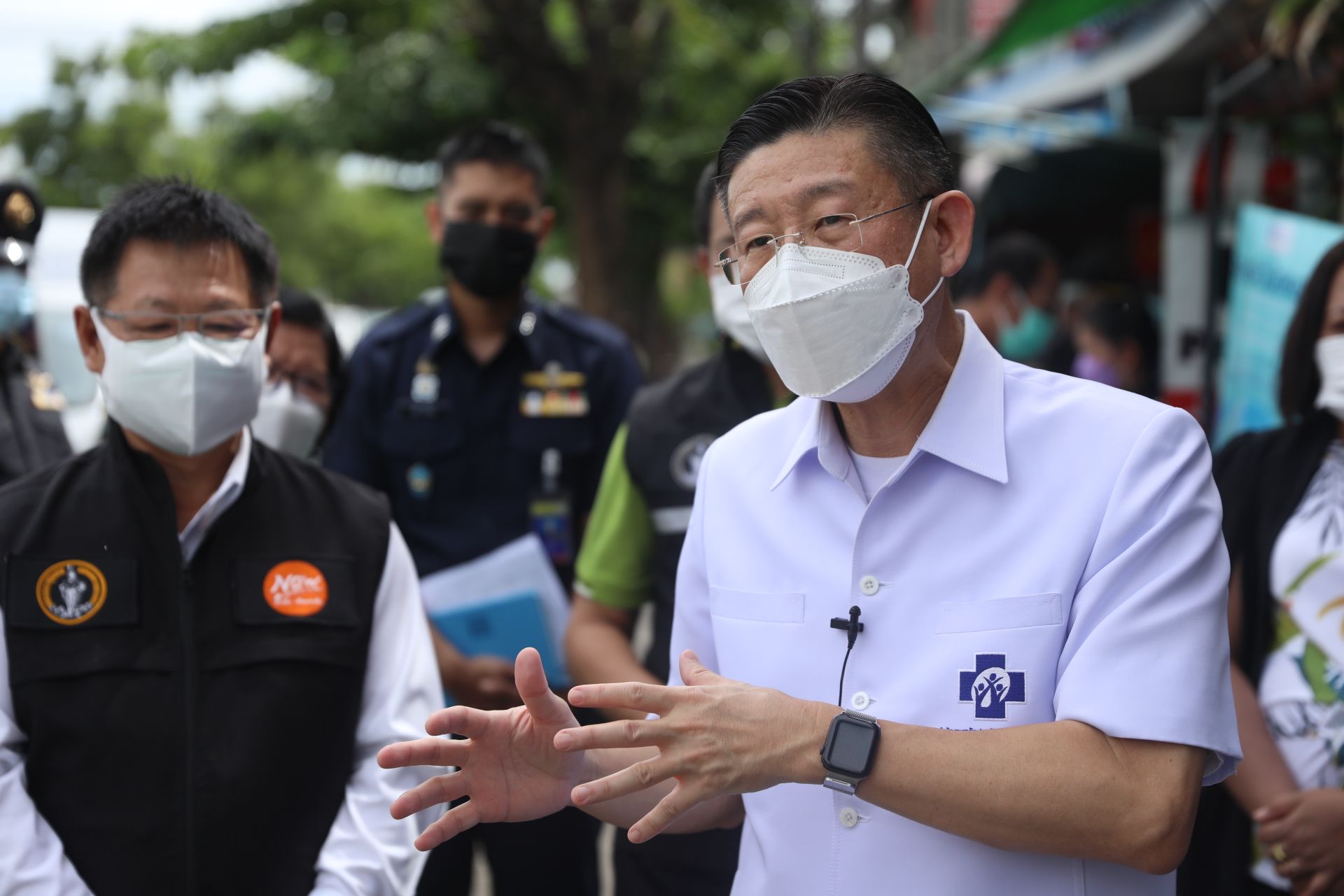
- Home
- DescriptionNews
More clinics join forces with NHSO to expand COVID-19 care for patients at home, in communities

More clinics join forces with NHSO to expand COVID-19 care for patients at home, in communities
Before joining the National Health Security Office’s (NHSO) Home Isolation and Community Isolation system on July 12, 2021, Ramintra Health Sanaclinic, a medical clinic in Khan Na Yao district of Bangkok, has already been taking part in an initiative to reach out to the people infected with the novel coronavirus and left without access to proper healthcare.
The clinic has been volunteering with a group of healthcare workers running a Facebook page called Rao Tong Rot (We will survive). The group consists of a number of medical doctors, nurses and other healthcare workers who try whatever they can to relieve difficulties facing COVID-19 infected patients who are unable to gain access to healthcare.
And when asked by the NHSO to become a part of its Home Isolation and Community Isolation system, the medical clinic that is already a member of the NHSO’s primary care network in Bangkok didn’t hesitate to say “yes”.

In the beginning, the clinic is capable of taking care of only 16 patients at a time; but it expects to keep expanding its capacity until it can handle up to a hundred COVID-19 patients in the Home Isolation and Community Isolation system, said Nunthasak Sookhkaew, a dentist who is the operator of the clinic.
“We’re glad to join hands with the NHSO to take care of COVID-19 patients at home, which is a very good policy to cope with the outbreak situation,” he said. “I think all other healthcare providers should join this effort to help the affected people.”

Aside from providing those patients with a set of a thermometer, fingertip pulse oximeter and medications and delivering to them three meals a day, the clinic give them a follow-up video call twice a day, said Dr Piyapong Suvansanya, the medical director of Ramintra Health Sahaclinic.
The regular video calling is not only for checking on the patients’ condition but also for assuring them that they currently are in a proper healthcare system, he said, adding that the caller can also provide suitable advice when knowing the actual health situation of these patients.
In case their symptoms are exacerbated by such as lung infection even while on favipiravir supplied by the NHSO, the clinic will immediately contact Nopparat Rajathanee Hospital and coordinate the transfer of the patients to the private hospital for treatment, he said.
The 1,000 baht imbursement for arranging three meals per patient per day is sufficient and the clinic has no trouble delivering them to the patients under its care at all as delivering food to COVID-19 patients is also part of its voluntary work, said Mr Nunthasak.
As for the 1,100 baht reimbursement for providing a thermometer and a fingertip pulse oximeter per patient, the clinic actually pays more than the given rate, he said.
After all that is not actually a problem because the clinic is willing to help support the NHSO’s effort to help COVID-19 patients.
The NHSO’s supplying of favipiravir, in particular, helps the clinic cope better with patients who go into COVID-19 isolation at home when they only have mild symptoms but may later develop moderate symptoms, he said.
“Since July 12, we’re so happy to become a part of the Home Isolation and Community Isolation system of the NHSO that helps improve public access to necessary healthcare,” he said.
The provision of COVID-19 antigen test kits has also been very helpful when it comes to active case finding, he said.
The rapid test kits are used for screening the people to see who actually need to undergo a RT-PCR test to confirm if they are infected with the virus or not, he said.

The NHSO along with Department of Medical Services has developed a guideline for properly reimbursing primary care providers for their services being offered to COVID-19 patients while waiting at home or in a community for their turns to be admitted to a hospital or a field hospital for treatment, said Dr Athaporn Limpanyalers, deputy secretary-general of the NHSO.
“The NHSO would like to thank Ramintra Health Sahaclinic and all other clinics that are taking part in this at-home COVID-19 care system. We do need cooperation from all sides to reach out to all infected patients during this crisis,” he said.
Dr Pattarapan Sakda, the owner of another medical clinic that now takes part in the COVID-19 care system, said since joining the Home Isolation and Community Isolation programme on July 19, 2021, his clinic has been taking care of about 160 patients.
Every day about 20 new COVID-19 patients contact the clinic and request to receive care under the Home Isolation programme, said the doctor.
the Home Isolation and Community Isolation system was designed by the Department of Medical Services as a mechanism to turn houses and communities virtually into hospitals which are equipped with necessary medical devices, medications, food and doctors, said Dr Jadej Thammatacharee, secretary-general of the NHSO.
A number of factors are normally taken into consideration as to which homes or communities are suitable for taking part in this COVID-19 care system, he said.
First, the condition of the patient determines whether he or she is suitable for receiving at-home COVID-19 care and only an infected person with no or mild symptoms should receive care at home.
Second, the condition of the patient’s home should also be totally suitable for COVID-19 isolation. It should have a separate bed room for each infected person. A place where two to three infected people sleep in the same room is not suitable for home isolation.
Third, the COVID-19 patient’s understanding and cooperation are also a key factor when assessing if he or she should be included into the Home Isolation and Community Isolation programme.
And lastly, the other important factor is the concerned hospital’s readiness for arranging a proper healthcare setting, in which a medical doctor is available to make a regular video call to home isolation patients and thermometers, fingertip pulse oximeters, and three meals a day are delivered to them as well.
“Because the COVID-19 situation changes constantly and fast, we have to work faster,” said Dr Jadej.

